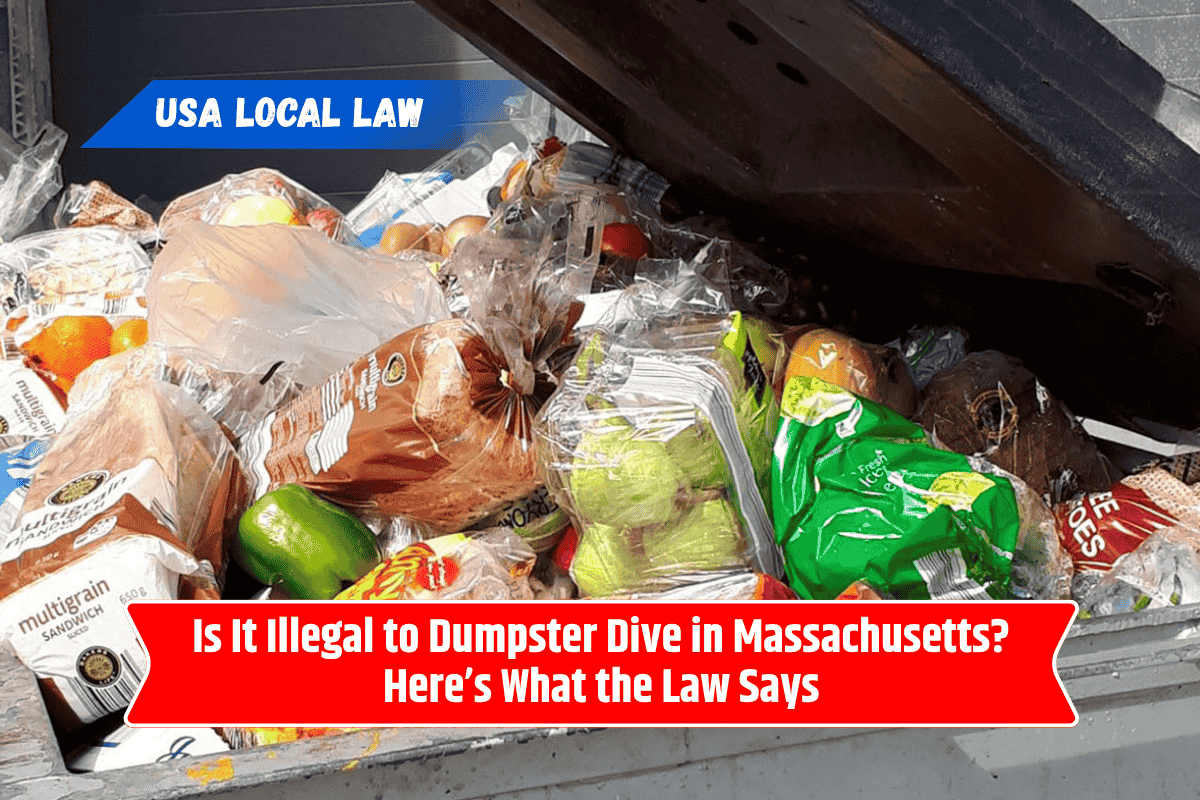Dumpster diving—going through trash bins for food, recyclables, or valuable items—is a practice that has grown in popularity due to environmental, financial, and even social reasons. But in places like Massachusetts, the big question many ask is: is dumpster diving actually illegal?
The answer is not black and white. There are no specific statewide laws that ban it outright, but it depends on several factors like location, property rights, and local city rules. Here’s a complete breakdown of what you need to know if you’re considering dumpster diving in Massachusetts.
What the Law Says About Dumpster Diving in Massachusetts
In Massachusetts, there is no law that directly says “dumpster diving is illegal.” In fact, the U.S. Supreme Court ruled in 1988 (California v. Greenwood) that trash left on the curb for collection is not protected by the Fourth Amendment.
This means, legally, once trash is put out for pickup in a public place, it no longer belongs to the person who threw it away.
However, this does not give you free access to dive into any bin you see. Local ordinances, trespassing laws, and the exact location of the dumpster play a major role in whether dumpster diving is legal in that spot.
Where You Can Legally Dumpster Dive
If a dumpster is placed in a public area, such as on the side of the street or near a public park, and there are no “No Trespassing” or “Private Property” signs around, then it’s usually considered legal to go through the trash. But you still need to be respectful and careful not to create a mess or block traffic.
Some businesses may leave their bins in accessible places, and while they may not actively stop you, they might not be happy about it either. In such cases, it’s always better to ask for permission first. If the property owner or manager gives you permission, it’s perfectly legal.
Where Dumpster Diving Is Likely to Be Illegal
Dumpster diving becomes illegal when it involves private property. If a dumpster is behind a fence, inside a locked gate, or marked with a “Private Property” or “No Trespassing” sign, entering that area could lead to a criminal trespass charge.
Also, if you ignore a request to leave, or return after being told not to, that can also result in legal trouble.
Many stores, especially big chains, keep their trash bins locked or behind gates for this very reason—to avoid theft, mess, or safety issues. Breaking into locked bins or climbing fences is a serious offence and can result in fines or arrest.
What Items Can Get You Into Trouble
Another important thing to note is that taking personal information from trash—like bills, bank statements, or ID cards—could lead to charges such as identity theft. Even though the trash is “abandoned,” using someone’s personal data is a crime.
Similarly, taking items marked for recycling or donation can also get you into trouble, especially if those items are meant for registered recycling companies or charities.
Tips for Dumpster Diving in Massachusetts
If you’re planning to dumpster dive, here are some simple tips to keep you on the right side of the law:
Check for signs: Always look for “No Trespassing” or “Private Property” signs.
Avoid locked or fenced areas: These are off-limits and entering them can be considered trespassing.
Dive during the day: Night-time diving may raise suspicions or lead to police involvement.
Leave the area clean: Don’t scatter trash around, as this can lead to fines for littering.
Don’t fight if asked to leave: If a property owner or worker asks you to leave, respect their request and move on.
In short, dumpster diving is not automatically illegal in Massachusetts, but the legality depends on where and how it’s done. As long as you stay in public areas, avoid trespassing on private property, and don’t take personal or sensitive items, you’re generally safe.
Always use common sense, respect local rules, and be aware of your surroundings to avoid legal trouble.
